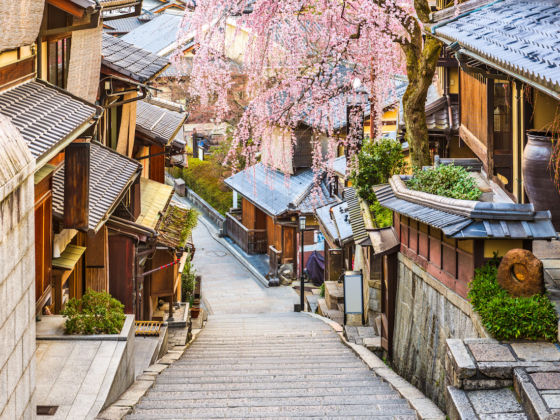Japan recently and hurriedly removed thousands of Airbnb listings in order to conform to new short-term leasing laws across the country, leaving visitors scrambling to find suitable, cheap alternatives. The past month has been chaotic to say the least, as Japan isn’t exactly well-known as a destination for budget travelers. Though low priced, healthy food is readily available, and a night out drinking or even a bit of travel by bus or train quickly adds up. The new law, known as Minpaku, has made affordable lodging a scarce commodity, though not impossible to find. With that in mind, here are some options available for travelers looking for a place to sleep in Japan without breaking the bank.

How to Find Cheap Lodging in Japan Now That Airbnb Is Gone
1. Capsule Hotels
Uniquely Japanese and now found in many of the country’s major cities, capsule hotels are one of the cheapest ways to have a safe place to sleep in Tokyo, Osaka, Nagoya, or Kyoto (though they’re next to impossible to find in the countryside). As long as you don’t suffer from claustrophobia or have a lot of luggage, a capsule hotel may be a fun, affordable experience. In most capsule hotels, you’ll store your bag in a locker on the ground level, take a bath on the second, and sleep on the third, next to a few dozen other people in your own personal pod. Most of these facilities are catered to male Japanese businessmen — and some don’t allow women at all, or seperate genders by floor — but there has been a rise in popularity for foreign travelers of all genders. Just be aware there has also been a surge in “luxurious” capsules; some in Shibuya go for 13,000 yen/night (about $116).
2. Hostels
Though less common than both capsule and regular hotels, there are a number of hostels offering dormitory-style lodging for under 3000 yen/night (about $27) in Japan. Hosteling International offers a few in very random corners of the country, and private hostels are available in both major cities and rural areas, with a particular focus near ski resorts.
3. Nojuku
The good news about this type of accommodation — it’s free! The bad news? You get nothing for your money. Nojuku means sleeping outside, a practice that is legal in all of Japan, and not at all unheard of for working professionals who happen to miss the midnight train back home. While Japan is generally one of the safest countries in which to do this, it shouldn’t be taken lightly; many travelers would probably prefer to have a roof over their heads and a lock on the door. While police may ask for your ID at 4:00 AM, they won’t knock you over the head and insist that you move on.
4. Internet Cafes
There are literally thousands of people using this particular method to live in Tokyo. While wifi is slowly working its way into the ethos of Japan, this throwback to Internet culture in the early ‘00s is alive and well, mainly for gamers and people looking for a little privacy. Though there are private rooms at Japanese internet cafes for those who want to watch a movie with unlimited Coke refills, the cheapest available is usually a booth with a single leather chair that doesn’t go completely horizontal, and a monitor. Short of staying outside, this is the cheapest way to sleep while traveling through Japan: under 1000-2000 yen (about $18) for the night.
5. Minshuku
This type of Japanese accommodation stretches the definition of “budget,” but is still somewhat cheaper than business hotels and traditional ryokan. Unlike minpaku (accommodations in private residences, which Airbnb operates under), minshuku are budget guesthouses specifically operated for those who want the experience of sleeping on tatami mats and bean pillows at more affordable prices. The rooms are typically smaller, the meals less extravagant, and the décor less luxurious than what you’d find in a ryokan, but sometimes it’s hard to tell — a cheaper ryokan might be less appealing than well-maintained minshuku. Prices per night start around 5000 yen (about $45).